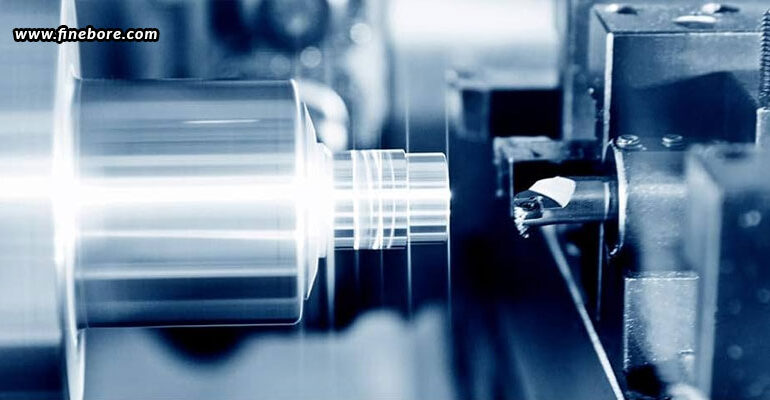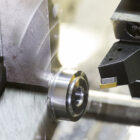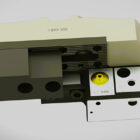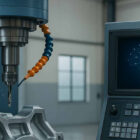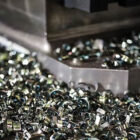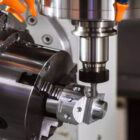Boring tools are used extensively in many different industries and are essential to precision machining. However, despite their significance, there are a few myths and misconceptions about the operation, capabilities, and upkeep of these tools. Ignorance of these instruments can lead to subpar functioning, elevated expenses, and potential harm to your equipment. In order to help you make wise judgements regarding your machining processes, this blog seeks to dispel some of the most widespread misconceptions around boring tools and offer correct facts.
Myth 1: Boring tools are only for large holes
Reality: Boring tools can be used for a variety of hole sizes
The idea that boring tools are only useful for making really big holes is among the most widespread misconceptions. In actuality, boring tools are adaptable and may be used for a variety of hole sizes, ranging from bigger bores to tiny precise holes. Contemporary boring tools are available in a range of diameters and may be customized for different applications, thanks to modular systems and interchangeable heads. For example, boring tools are frequently used in high-precision industries like aerospace and automotive to achieve micro-sized bores with extraordinary accuracy. Furthermore, operators can use a single tool for different hole sizes when using boring bars with interchangeable heads, which increases productivity and versatility.
Myth 2: Boring tools are only for internal machining
Reality: Boring tools can also be used for external machining
Although they are most commonly used for internal machining, boring tools can also be employed for external operations like turning or facing. Boring bars can be modified for use in external cutting applications in some circumstances, particularly in cases where control and accuracy are crucial. Because they are so adaptable and can be fitted with various tool heads, modern boring tool systems can be used for a wide range of machining operations. This notion probably originates from a lack of knowledge about the complete potential of boring tools and how versatile they are in different machining situations.
Myth 3: All boring bars are the same
Reality: Boring bars vary in their functionality and design
A common misconception is that boring bars all have the same form and purpose. However, depending on the particular machining requirement, boring bars are available in a variety of shapes, sizes, and configurations. For example, there are three types of boring bars—solid carbide, modular, and adjustable—each intended for a particular purpose. While modular boring bars allow for replaceable heads and flexibility in a variety of activities, solid carbide boring bars are ideal for rigidity and reducing vibrations in deep holes, and bore diameter adjustments can be made with the help of adjustable boring bars. To get the best results, it’s critical to choose the appropriate kind of boring bar based on the specifications of the project.
Myth 4: You can use the same boring tool for all materials
Reality: Material-specific boring tools offer better results
The idea that one boring tool can be utilized for all kinds of materials is another common misconception. In actuality, different kinds of cutting tools are required for different materials in order to achieve the best results. A well-suited tool for aluminium might not be as effective when cutting cast iron or stainless steel. Different grades and coatings designed for particular materials are available for boring tools. For instance, to improve heat resistance and extend tool life, titanium nitride (TiN) or titanium aluminium nitride (TiAlN) coatings may be applied to tools used for cutting hard materials such as titanium or nickel alloys. A tool that is specifically designed for the material you are dealing with will yield greater surface quality, longer tool life, and better cutting performance.
Myth 5: Carbide boring tools are always better than HSS
Reality: Material choice depends on the application
Many people believe that carbide boring tools are always better than high-speed steel (HSS). Although carbide tools are more durable and resistant to wear, they are not always the ideal option in all situations. The material being machined, the cutting speeds, and the operating conditions all play a role in the decision between carbide and HSS. Low-speed applications and softer materials like mild steel, brass, and aluminium are better suited for HSS tools. But, when it comes to machining tougher materials like titanium, stainless steel, or hardened alloys, carbide tools perform exceptionally well. Carbide tools have the potential to chip or shatter when used at low speeds, whereas HSS tools might be more resilient in certain situations. Hence, the appropriate material must be chosen in accordance with the particular requirements in order to achieve exceptional outcomes.
Myth 6: Any toolholder can be used to insert boring bars
Reality: Optimal toolholder selection improves efficiency and lowers vibration
Some machinists believe that boring bars can be utilized with any kind of toolholder. But, the fact is that poor clamping, higher vibration, and reduced cutting precision might result from employing the wrong toolholder. Better surface finishes and longer tool life are the results of secure clamping and excellent tool performance, which are ensured by a well-fitted toolholder. Different kinds of toolholders, like dampened toolholders that lessen vibration and improve stability during deep boring tasks, are made especially for boring operations. To get the best results, always make sure that your boring bar corresponds with the toolholder you’re employing.
To maximize outcomes and streamline your machining processes, it’s imperative to debunk prevalent misconceptions about boring tools. Understanding is essential to preventing expensive errors when it comes to choosing the proper configuration for your particular activity, maintaining your tools, or picking the suitable tool material. And, it is also essential to get your hands on the finest boring tools. This is where you can rely on the services of FineTech Toolings, the most trusted boring tools suppliers in Bangalore, whose products are designed to meet the diverse needs of the machining industry. Focusing on precision engineering and customer satisfaction, FineTech Toolings provides dependable solutions that enable you to optimize your boring operations for optimal efficiency and performance.

